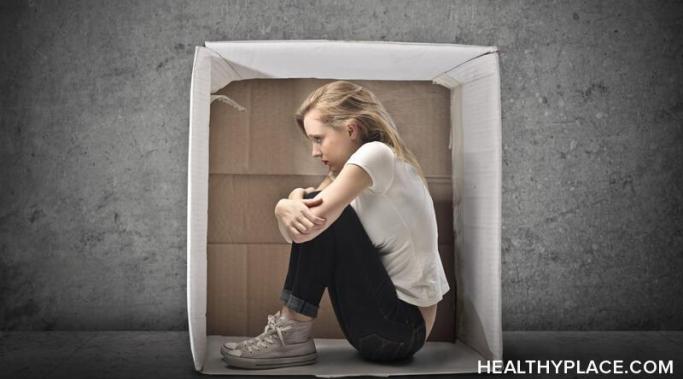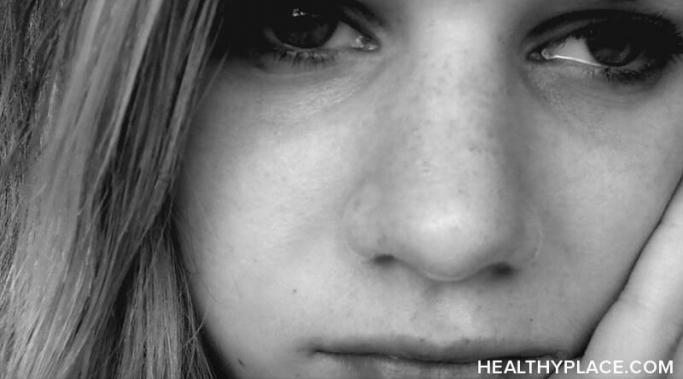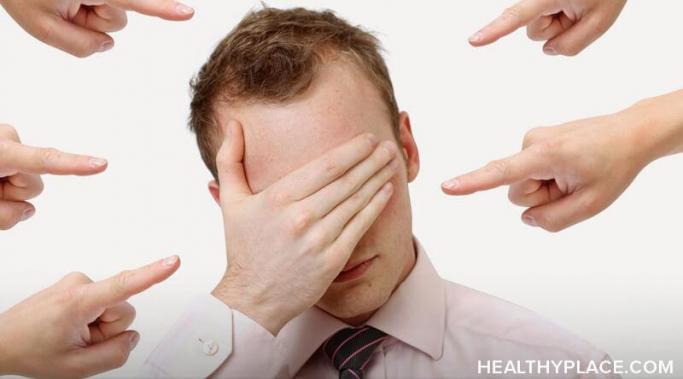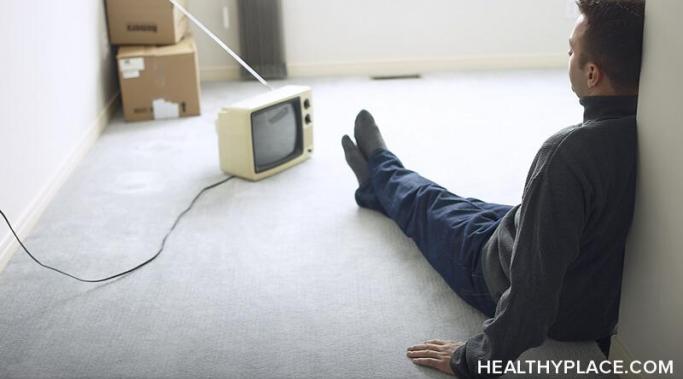These days, using the word trigger will probably elicit a few reactions: eye rolls, groans, and insults. Yes, there are people that take the word trigger seriously when used in conversations about mental illness, but, for the most part, it has become a derogatory thing that people use sarcastically to insinuate that people are too politically correct or soft. The negative side effect of that is that people who talk about mental illness triggers are also regarded with the same disregard when triggers can actually have serious impacts on people with mental health disorders.
Impact of Stigma
Working with social anxiety isn't a cure for social anxiety disorder, but working with the disorder has taught me a few things. Other people may look at social anxiety disorder and think that people just need to get over their irrational fears or worries and become productive members of society, especially when it comes to working. I was one of those people who wondered how I would ever be able to work considering the paralyzing anxiety I felt from having to deal with the public, using the phone, and other work-related things. I felt (and sometimes still do feel) the constant pressure of that stigma saying suck it up and go to work. So I did, and here's what I learned from working with social anxiety.
The idea of mental strength often plays into mental health stigma. Out of the many ways we endeavor to encourage people through tough periods of mental illness, encouragement to use mental strength is pointless. Many of these ways are phrases or words meant with the best intentions, but they can also be potentially harmful — or at least I’ve seen the harmful effects they’ve had. Of the number of platitudes people say, one I get stuck on is “stay strong.”
Is it possible to destigmatize mental illness by refusing to use the word "stigma?" If you’re having a discussion about mental illness, it’s almost inevitable someone will mention stigma. When talking mental health, stigma refers to the misinformed perceptions and ideas about mental illness and those with it. It’s a big component in why people feel ashamed to have a mental illness and suffer in silence instead of seeking mental health treatment and understanding that mental illness is just an illness. Since there is still widespread misinformation, it’s not surprising the word "stigma" comes up often. What is surprising, however, is that there are those who say stigma does not exist, we should stop using the word "stigma," and I’ve even seen the claim that it’s offensive. Can we destigmatize mental illness by not using the word "stigma?"
Dehumanizing people with addiction is something many people do without thinking about it. For example, when someone says “addict,” there are probably a few images that readily come to mind and descriptors to go along with those images — crackhead, drunkard, nasty, degenerate, the list goes on. This is the stigma of mental illness at play as preconceived notions and dated ideas of what it means to have an addiction take over our perception. When we let that happen, we’re dehumanizing people with addiction. This happens with all kinds of addiction, too.
Using mental illnesses as insults is invalidating and harmful. These days, it’s hard to go far without coming across the topic of mental health and mental illness. Considering it’s still such a taboo subject that people shy away from, this seems like something we should be rejoicing over as advocates and activists — and I would, but for the fact that it’s still being spoken of in negative, stigmatizing words. Although people are mentioning mental illness seemingly more and more, all it’s doing it adding to the already existing stigma since mental illness is being used to insult people.
No one can diagnose an eating disorder by looking at someone's body type; yet, when we think about eating disorders, there are probably two images that pop into our minds: Someone who’s painfully thin and another person who’s largely overweight. The problem with that kind of thinking is instead of seeing eating disorders as mental illnesses, we see them as body types. As harmless as it may seem, if you try to diagnose an eating disorder by body type, it is a form of mental health stigma.
Sometimes there is no way to avoid feeling like a burden because of your mental illness. Whether it is for emotional, physical, or financial reasons, the reality of mental health problems can be difficult to bear for both those who suffer from mental illness and those who consider themselves caretakers of those who struggle. For people who have a mental illness, feeling like a burden comes with a tremendous amount of self-stigma that is reinforced by the silent stigma of those who must bear the weight of the “burden” that mental illness causes.
Some people with mental illness isolate themselves to feel protected from mental health stigma. Because stigma labels someone as an outlier, many people withdraw when feeling stigmatized for their mental health. Apart from the stigma of mental illness and self-stigma making us feel poorly about ourselves in general, seeing stigmatizing ideas all over the media, hearing them spoken to us, or even thinking them to ourselves can amplify the sense of isolation that mental illness already brings. We need ways to counter the isolation that mental health stigma brings as loneliness can lead to hopelessness and negatively impact recovery.
News coverage that stigmatizes mental illness often occurs after events like mass shootings and other tragedies. The reporters often bring up mental health and how that may have played a part in what happened. Whether or not there is even any initial evidence of mental illness, the fact that someone could commit such an atrocity invokes assumptions of mental instability. People then tend to associate that idea with mental illness as a blanket statement, despite how complex and different individual mental illnesses are. With these conversations inevitably comes misinformation and stigma, and when these news stories saturate our social media and even traditional media sources, it can be tough to contend with as someone with a mental illness. News coverage that stigmatizes mental illness creates problems for society and individuals, and here are two ways it happens.









